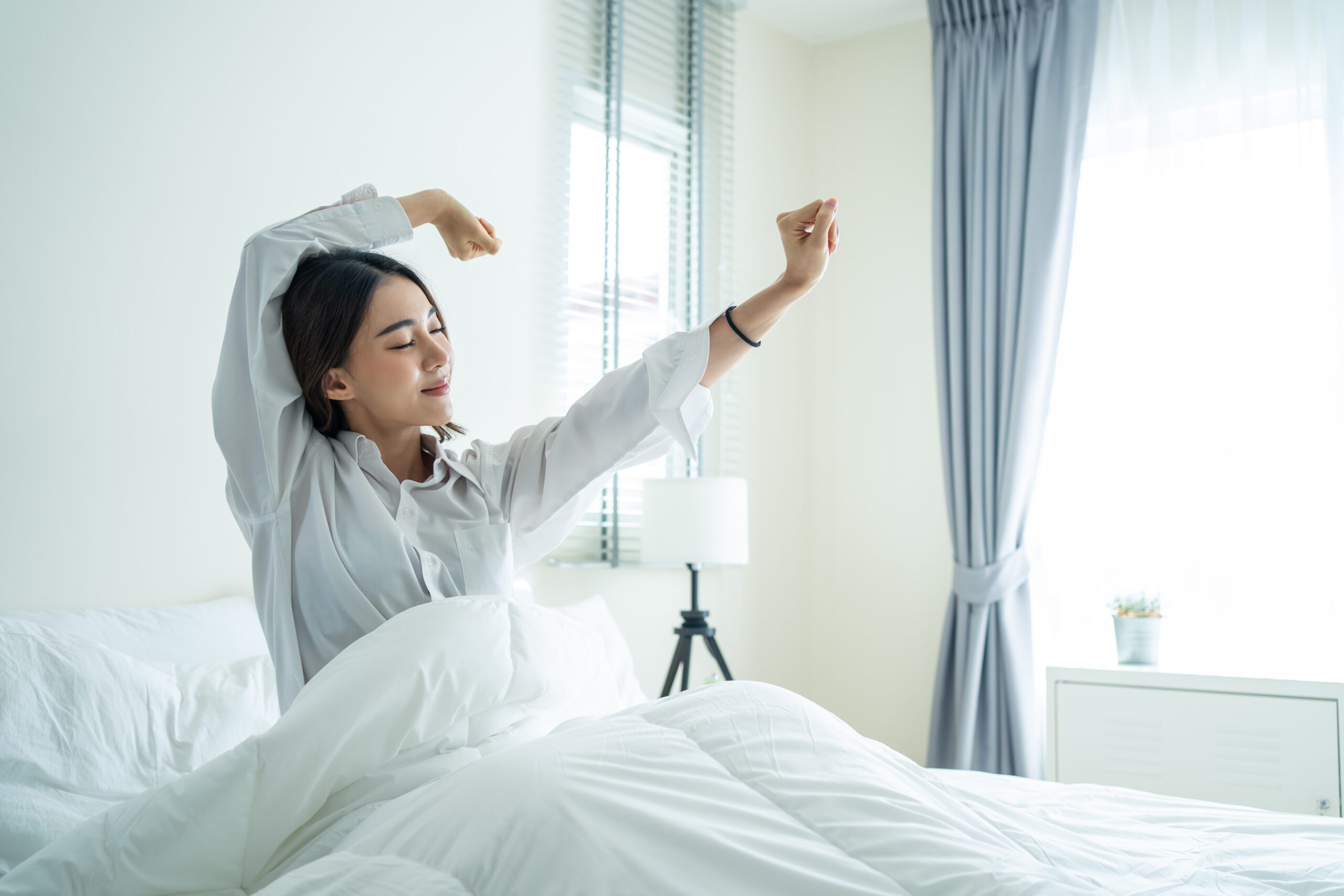March 10-16 is Sleep Awareness Week. Sleep is connected to a variety of wellness outcomes, and the lack of it puts people at risk for a wide range of mental and physical health issues. Unfortunately, poor sleep has only become a bigger issue since the Covid-19 pandemic, with nearly twice as many people struggling with sleep disorders now than before. This new phenomenon of sleep problems related to stress from the pandemic has been labeled “Coronosomnia.”
How Much Sleep We Need
There is some variation from one person to the next, but the American Academy of Sleep Medicine generally recommends:
- Teenagers – 8-10 hours per night
- Adults – 7-9 hours per night
- Adults over age 65 – 7-8 hours per night
At Highland Hospital in Charleston, West Virginia, we encourage our patients to follow these guidelines.
Why We Aren’t Getting the Sleep We Need
There are a variety of things that interfere with how much sleep and what quality of sleep people can get. These include:
- Long work hours
- Stress
- Physical pain
- Substance use disorder
- Sleep disorders
- Sleep apnea
- Circadian rhythm disruptions
- Restless leg syndrome
- Excessive daytime sleepiness
- Narcolepsy
- Sleepwalking
- Nightmares
Why We Need Sleep
The amount and quality of sleep you get each night impacts:
- Repair and replenishment of cells
- Memory consolidation
- Emotional processing and stress management
- The brain’s ability to remove toxins
- Your ability to learn and focus
- Risk of developing suicidal thoughts
Poor sleep is also connected to heightened anxiety and depression, even when sleep is low quality only a couple of nights per week. The number of people struggling with anxiety and depression is also considerably higher than pre-pandemic levels.
How Our Mental Health Impacts Sleep
Not only can sleep impact our mental health, but our mental health can also affect our sleep. Around 50-80 percent of people being treated for mental illness typically report sleep problems, compared to around 10-30 percent of the general population. People with the following conditions are especially susceptible to sleep problems:
- Anxiety
- Depression
- Bipolar disorder
- Attention deficit hyperactivity disorder (ADHD)
Scientific studies have also found a possible link between poor sleep and post-traumatic stress disorder (PTSD), eating disorders, and psychosis symptoms, including delusions and hallucinations.
What Can You Do About It?
If you’re struggling to get enough sleep or good quality sleep, there are actions you can take to try to combat the problem.
- Light – spend some time in bright, natural light during the daytime hours. A light box can be used in winter months when natural light is not as easily available. When it gets to be later in the day, start turning off or lowering the brightness of lights to allow your brain the opportunity to pick up on cues that bedtime approaches.
- Exercise – 30 minutes per day, 5 days a week can help you sleep better at night, but be sure to do it at least several hours before you plan to go to sleep.
- Food – Eat at consistent times each day, and don’t eat meals that are heavy late in the day. Also try to get enough fiber and reduce saturated fats and sugar, as these have been linked to poor sleep quality.
- Substances – avoid nicotine, caffeine, alcohol and other drugs that might interfere with sleep.
- Wind-down – develop a consistent routine every night to help you relax before bed. If you have ever had a baby or toddler, you might have had a routine for their bedtime that you could age up for yourself. Start the routine at the same time every night,and follow it with a consistent bedtime and wake-up time, even on the weekends. Activities might include:
- A bath
- Reading a book
- Having a hot cup of caffeine-free tea
- Journaling
- Meditating
- Environment
- Ensure the space where you sleep is cool, dark, quiet, well-ventilated, and free of electronic devices.
- Don’t spend time in this space if you are not sleeping, as this can cause the brain to link the bedroom to wakeful activities, rather than rest. If you cannot fall asleep, get up and do something relaxing in another room until you start to feel tired.
- Consider keeping pets out of your bedroom if they wake you up in the night.
Reach Out for Help
If you have tried the techniques above and are still struggling, you can try to get additional support from:
- Your primary care doctor, who may be able to determine if there is an underlying medical issue contributing to your sleep issues.
- A sleep specialist, who may be able to determine what other factors are contributing to your sleep problems and make recommendations about how to treat them.
- A therapist, who may be able to teach you strategies like sleep restriction, meditation, progressive muscle relaxation, biofeedback stimulus control, and self-hypnosis to improve your sleep.
- A psychiatric medication prescriber, who may be able to help your sleep problem by addressing related mental health concerns.
There is also a free Sleep Helpline you can contact for personalized, confidential support.
At Highland Hospital, we know that our patients’ mental health is more manageable when they get good quality sleep and that they sleep better when they receive the mental health support they need. We are happy to help them find ways to live and sleep better.










